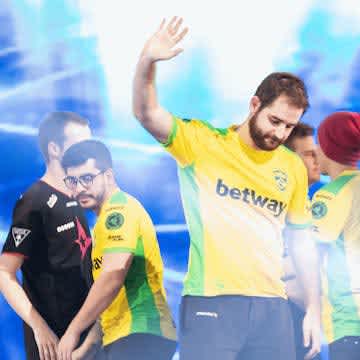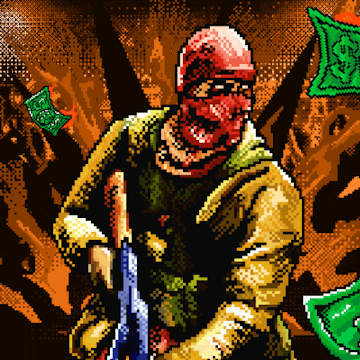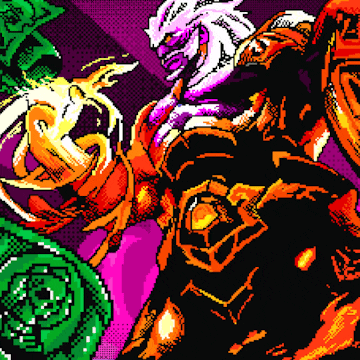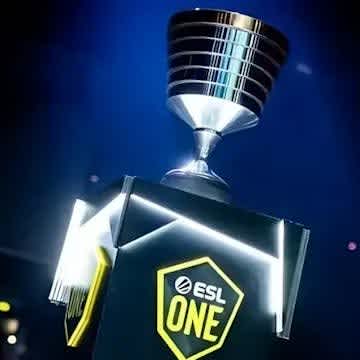Valve's bombshell announcement is a net positive for everyone – even ESL and BLAST
Well-read people in the know have already heard it through the grapevine, but now it’s official: Valve will crack down on franchised leagues in CS:GO in a big way, effectively ending the current business model of BLAST and forcing ESL to greatly readjust some of their primary tournament offerings. In light of all that’s happened in this turbulent industry over the past few years, this has to be seen as a huge step forward for everyone involved. Yes, even the tournament organizers.
Four paragraphs and three bullet points were all it took to change competitive CS as we currently know it. Titled “A Level Playing Field”, the blog post is short but sweet, and it’s worth showcasing here in full before discussing it in detail:
“Counter-Strike is at its best when teams compete on a level playing field and when ability is the only limit to their success.
Over the past few years, we’ve seen professional Counter-Strike drift away from that ideal. The ecosystem has become gradually less open, with access to the highest levels of competition increasingly gated by business relationships.
We think that Counter-Strike should be an open sport. So we’re going to add new requirements to running large-scale competitive events. The finer details are still in progress, but here are the broad strokes:
- Tournament organizers will no longer have unique business relationships or other conflicts of interest with teams that participate in their events.
- Invitations to all tournaments will use our ranking system (detailed here), or otherwise be determined by open qualifiers.
- Any compensation for participating teams—prize pool or otherwise—will be made public and will be driven by objective criteria that can be inspected by the community.
Since tournament organizers have existing long term commitments, these requirements will take effect as of 2025. There will be some rough edges to the transition, but we’re committed to the long-term health of Counter-Strike as a sport and are looking forward to its bright and open future.”
This is a great change with big implications for the ecosystem, and a sign of things to come. With every passing day, it’s becoming more clear that the Riot/Blizzard-like, VC-funded vision of esports has not materialized. Audiences are not willing to pay for broadcast viewing, live events are logistical nightmares and can’t be scaled up enough to make them the main money-makers, and at the end of the day, it’s the game you’re trying to sell, not a standalone entertainment product.
With orgs fleeing the once ultra-coveted LCS spots, the Overwatch League on the verge of collapse, and VALORANT’s franchising system looking more contentious than ever, Valve’s somewhat hands-off approach to professional CS:GO matches seems to be all the more appropriate in the middle of the esports winter. Let people play the game and get them interested in buying. If you can make some money on the side, good on you.
I remember discussions in the big-money era about future showdowns between developers and TOs about who really creates the added value and who can make the rules. The answer to that one seems pretty clear now, doesn’t it?
From a player and viewer perspective, this change is a unanimous net positive. We knew this was coming – still, the timing almost feels like a troll. In the middle of IEM Cologne, ESL’s crown jewel, a former Major? Not in the player break, not around the release of CS2, not between two tournaments: smack-bang in the middle of a big thing. Of course, ESL’s going to be less impacted by this than BLAST, whose circuit was a whole lot more egregious in terms of exclusivity.
To my mind, Valve’s willingness to put the hammer down in this regard also bodes well for the in-client competitive experience for CS2. It’s no secret that ESEA and FACEIT (now one and the same) essentially supplanted high-level play from traditional matchmaking in CS:GO, and many have wondered whether the devs will put the effort and resources into remaking this in the new game, upending the business model of some valuable partners in the meantime. Rumors and leaks now suggest that seasons and leaderboards are on the way, and all this seems to suggest that the answer is a resounding yes.
Note that this isn’t Valve’s only recent big esports-related announcement: over in Dotaland, The International is becoming just a little bit more viewer-friendly. There’s a lot of valid criticism about how the company’s handled their MOBA’s esports scene, with the all-encompassing DPC rendering many third-party events irrelevant across the years, and the ultra-top-heavy nature of TI unbalancing the circuit in a variety of ways, but it’s clear that the men in Bellevue continue to move things around and readjust things in a bid to engineer a brighter future. Based on everyone’s track record, I’d rather they did it than the tournament organizers or the big orgs.
Speaking of which, what if big orgs miss out on showpiece CS events? I’m skeptical about the concerns. First of all, esports fans follow players, not teams, this is quite clearly established by now. Also, CS fans love an underdog story, as long as it is legitimate, forged in the fire of tough tournaments instead of high-variance crap. Something something EZ for ENCE. Perhaps a bit less so for ESL and BLAST now. But we all have a year and a half to figure it all out. Money, after all, is a crime. To share it fairly, Valve will take a slice of their pie. More power to them.







